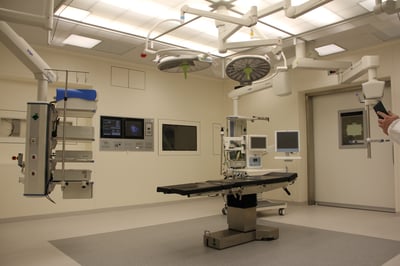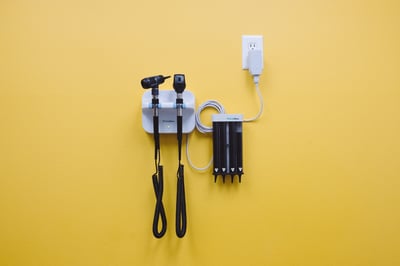In the first half of 2019, $4.2 billion was invested in digital health.
It’s been a few years since the gargantuan health care industry has tried to shed its lumbering, legacy-paralyzing reputation. Technology, digitization, and innovation have transformed the health care industry into one that takes note of patient experience and the impact of consumer behavior.
While 2017 was a historic year of mergers and acquisitions (M&As) in the health care space, investment activity hasn’t slowed down. In this column, I will discuss a handful of noteworthy mergers, acquisitions, and funding rounds that have happened so far in 2019.
Health care funding rounds in 2019
Similar to M&A activity in the health care space, investment and funding activity has seen steady growth since 2011. Health care venture fund company Rock Health reported that “despite some year-to-year variation, the funding environment remains fundamentally unchanged from recent years.” Because health care startups and consumer-facing health device companies are churning out innovative technology, venture capitalists are funneling their money and support behind companies brainstorming industry disruption.
Let’s take a close look at five recent funding rounds.
What happened
- In July 2019, electronic lab notebook (ELN) Benchling raised $34.5 million in Series C funding from Menlo Ventures, Benchmark, Thrive Capital, Lead Edge Capital, and Y Combinator Continuity.
The details
- Benchling began life as an ELN but has grown into a platform that manages the entire life cycle of life sciences research. Thanks to the funding, Benchling can further grow internationally, develop new products and services, and nurture relationships in the industry.
- Benchling has been positively received by researchers and scientists since its founding in 2012; PR Newswire reports that “Benchling has achieved a 90% user adoption rate … In the last 12 months, Benchling has also seen 130% revenue growth in existing customers.”
- Benchling received $7 million in Series A funding in October 2016, and $14.5 million in Series B funding in June 2018.
Impact
- Laboratories benefit immensely from automation and systems that communicate across lab departments. Benchling helps researchers and lab staff track complicated research and development life cycles. Additionally, products like Benchling streamline and standardize processes, speed up workflows, and generate accurate and updated records to help digitize industries that cannot afford to have gaps or inaccuracies.
- The world is seeing breakthroughs across vertical industries including pharma, agriculture, and biologics. When research and development (R&D) labs are stuck in the past, critical decision making along with innovation is significantly delayed. Additionally, the consequences of an R&D company consistently stuck due to compliance and regulation issues are severe.
Incredible Health
What happened
- In September 2019, nursing job platform Incredible Health raised $15 million in Series A funding from Andreesen Horowitz, NFX, Obvious Ventures, Precursor Ventures, and Gingerbread Capital.
The details
- Founded in 2017, this platform provides a place for California hospitals, medical institutions, and health care systems to streamline and simplify the nurse recruitment and acquisition process. This platform also provides an optimized job search experience for nurses.
- Incredible Health “taps algorithms to help health systems narrow down the list of qualified nurses, and to provide nurses with personalized, tailored opportunities they’d not likely find anywhere else,” explains Venture Beat. The platform doesn’t automate the entire process, but it does help ease the hiring process.
- The founders plan to use the funding to improve their product, hire more sales representatives and software engineers, and expand nationwide. Currently, only California systems can leverage Incredible Health.
Impact
- The founders of Incredible Health, Iman Abuzeid and Rome Portlock, personally understood how difficult it was for health systems to hire talent and for nurses to find new jobs. Both Abuzeid and Portlock come from families of doctors and nurses; Abuzeid was a trained doctor prior to founding Incredible Health. As a result, they were both very aware of the difficulties of staffing for both facilities and potential employees. Incredible Health aims to address the increasing nursing shortage in the United States; its mission is to enable health care systems to hire nurses in less than 30 days, compared to the current average of 86 days.
- While nursing roles are offered on other job platforms, Incredible Health advertises itself as an appealing, industry-specific alternative to its competitors. This platform is built specifically for nursing jobs. This frees up administrators’ time and equates to more time spent cultivating talent, while giving hospitals and practices the chance to get ahead of staffing shortages.

AMBOSS
What happened
- In September 2019, medical education platform AMBOSS raised €30 million ($33.3 million) in Series B funding from Partech, Target Global, Cherry Ventures, Wellington Partners, and Holtzbrinck Digital.
The details
- AMBOSS began as a medical study tool developed for German medical students in 2013. It was designed to help medical students on their USMLE and NBME subject exams.
- With this funding, AMBOSS can roll out its product on a global scale and continue to develop its smart guidance for use on a clinical basis. In 2017, AMBOSS opened another headquarters in New York City to enter the market in the United States.
- AMBOSS previously raised €5 million ($5.6 million) in Series A funding from Cherry Ventures in 2017.
Impact
- While AMBOSS has the potential to empower new doctors and physicians, there are valid concerns about creating this type of knowledge database. If new recruits rely on the Google of medical information, how much longer will it take them to fully absorb the information?
- However, AMBOSS points to a more productive future for medical students who recently entered the workforce. Instead of memorizing and regurgitating outdated medical information, they can immediately apply updated medical knowledge to their care. The guidelines and facts found on AMBOSS “reduces the average research time needed for doctors to make a clinical decision from 30 minutes to 30 seconds,” reports TechCrunch.
Truepill
What happened
- In March 2019, Truepill raised $10 million in Series A funding from Initialized Capital, Y Combinator, Sound Ventures, and Tuesday Capital.
The details
- Truepill is a B2B pharmacy fulfillment service that handles the logistics, shipping, and pharmacy fulfillment processes for B2C pharmacy businesses. For consumers, Truepill offers a simple application programming interface (API) that provides visibility to their orders. Truepill advertises itself as “AWS for pharmacies.”
- Truepill plans to expand its team and domestic operations, and scale its fulfillment facilities to the United Kingdom market with its funding.
Impact
- Truepill powers prescription subscription services such as Nurx, Hims, and Lemonaid. According to MedCity News, its focus on “powering the entire ecosystem,” allows Truepill to forgo the fierce competition that exists between the B2C side of business that disrupts this industry. Truepill is slowly monopolizing the direct-to-consumer pharmacy fulfillment industry; giant hospital systems are also consolidating to stay nimble and remain agile for consumers that aren’t satisfied with the status quo.
- Truepill’s efforts continue to power an industry that understands the limitations of consumers—time is a top priority. When patients can video conference with doctors and streamline their prescription drug needs via an online subscription service rather than wait in line at a physical pharmacy, they will do that.
Kaia Health
What happened
- In January 2019, Kaia Health raised $10 million in Series A funding from Optum Ventures.
The details
- Kaia Health is a digital therapeutics company that creates smartphone videos and mobile tracking applications that help treat people with musculoskeletal (MSK) disorders and chronic obstructive pulmonary diseases (COPDs).
- Currently, Kaia Health offers psychological support, patient education, and motion tracking technology that helps doctors provide real-time feedback to their patients. Thanks to this funding, Kaia Health can further develop its technology, support deeper clinical evidence and research, and expand current offerings. The funding round also helps offset treatment costs when providing high-quality, tailored treatment for chronic conditions.
Impact
- Motion tracking applications already exist for exercise and wellness; telemedicine has equipped doctors with the tools to treat hard-to-reach patients (whether that’s due to location, time, or expense). Now, the two spectrums have merged to provide patients with chronic disorders and illnesses a way to actively track their health, engage with their providers, and improve their well-being.
- Kaia Health strives to offer an alternative to painkillers and leverage artificial intelligence and other innovative technologies to reach patients where they are, and reduce the costs of chronic pain management. Combating time spent in clinics and the financial investment in treatment, Kaia Health alleviates daily patient concerns.

MedTech Investments Overview:
 |
 |
 |
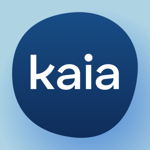 |

|
|
March 12, 2019→
Series A
$10 million
|
July 24, 2019→
Series C
$34.5 million
|
Sept. 12, 2019→
Series A
$15 million
|
Sept.18, 2019→
Series A
$10 million
|
Sept. 30, 2019
Series B
€30 ($33.4) million
|
Health care M&As in 2019
Mergers, acquisitions, and any other type of consolidation within the health care space has its ups and downs. Touted benefits of M&As include increase in scale, reduction in operating expenses, improvement in patient outcomes, consolidated data exchange, and increase in innovative technologies. Unfortunately, research has shown that the monopolization of the health care industry doesn’t actually lower health care spending. There’s evidence that patient experience often suffers post-merger.
However, these concerns aren’t slowing down M&A activity within the health care sector. While the current rate of acquisitions falls shy of 2017’s historic M&A numbers, the first six months of 2019 saw 43 acquisitions of digital health companies, reported Rock Health. Recent activity involved non-health care companies. JP Morgan Chase acquired health care payments company InstaMed in May 2019, Amazon acquired online pharmacy startup PillPack in June 2018, and Google’s Nest acquired health monitoring app Senosis Health in August 2017.
Consulting company Kaufman Hall explained that health care M&As reflect the need to “move toward strategic growth, driven in part by the need to acquire expertise and resources to manage the industry-wide changes facing hospitals and health systems.” Industry-wide changes, while specific to the nuances of such a sensitive sector, means changes to the administration and operations side of health care, as well as the patient-facing side of health care.
They’re not financially motivated either; health care financial publication Revcycle Intelligence explains that health systems “on the sell-side” are taking advantage of M&As that allow them to expand beyond their “geographic synergies” and that “hospitals on the buy-side” can lean on acquiring new organization to “fill gaps in capabilities or market coverage...while expanding care models into new regions.”
Care delivery and payment models bring value to medical practices and organizations, so does a non-health care perspective. When the health care industry is taking notes from retail and other consumer-driven sectors to evolve its technology offerings, it makes sense that significant tech companies are buying up health care stock. Let’s face it, JPMorgan Chase, Amazon, and Google only benefit from absorbing the expertise of health care institutions and companies.
Let’s look at three recent consolidations.
Nuance + Microsoft
What happened
- Conversational intelligence software developer Nuance and Microsoft partnered up in October 2019 to “accelerate the delivery of ambient clinical intelligence (ACI) technologies that will power the exam room of the future,” reported Seeking Alpha. In a post-announcement blog post, Microsoft explained that its partnership with a health care-specific software development company allows them to develop ACI and alleviate the distracting burden of clinically accurate documentation.
The details
- Nuance and Microsoft have realized the progress that can happen if they merge their efforts on ACI technology and intelligent dictation and scribing technology. Nuance’s conversational AI technology has developed over the years to ease the clinical documentation responsibilities of doctors and physicians. Now users will be able to leverage Microsoft’s deeper research investments and existing partnerships to scale.
- Microsoft explains that “as part of the agreement, Nuance will migrate the majority of its current on-site internal infrastructure and hosted products to Microsoft Azure.”
Impact
- Ideally, ACI helps eliminate the need for doctors or nurses to conduct manual data entry. Updates to a patient’s health record is securely captured via voice command and recording. While this kind of technology doesn’t quite exist, the Microsoft and Nuance partnership has accelerated its progress. Both artificial intelligence and conversational intelligence are being applied to convert conversations between patients and providers into useful clinical documentation.
- Recent innovation in health care technology has revolved around reducing or eliminating manual, administrative tasks for medical professionals. Now, the focus of innovation has shifted to enabling and streamlining those systems so that they’re interoperabile with existing systems like EHRs.
Datica + Sansoro Health
What happened
- Health care compliance vendor Datica acquired health care information company Sansoro Health in June 2019. The combined company will retain the Datica name and offer a merged platform to help customers “adopt any cloud device while securely integrating patient data from any source,” reports Healthcare IT News.
The details
- Datica and Sansoro will provide a self-service platform for health care systems that will secure cloud-based applications and streamline data integration. The combined platform offers customers a centralized product suite that enables health care systems to securely integrate patient data from any source.
Impact
- Many health care companies have embraced remote hosting, and ensure compliance standards and patient security are met when enabling cloud hosting. Another benefit of these companies merging is the ability to “streamline development and management of cloud-based applications,” reports HIT Consultant. Datica has already provided digital health startups and existing health systems an infrastructure to create applications. With its absorption of Sansoro’s EHR integration software, Datica can now better guarantee patient data privacy.
Allscripts + ZappRx
What happened
- In June 2019, EHR vendor Allscripts acquired e-prescribing and prescription verification platform ZappRx. Previously, ZappRx raised $25 million in Series B funding. Upon acquisition, Allscripts will absorb ZappRx’s functionalities into its Veradigm, its payer and life sciences business unit.
The details
- ZappRx’s technology helped medication dispensing companies avoid misstepping on compliance, verification, and fulfillment gaps. With ZappRx, pharmacists and physicians could modernize their operations and simplify their verification, credentialing, and ordering processes.
Impact
- By merging with ZappRx’s expertise, Allscripts could venture outside of its comfortable EHR space, productively augment its life sciences and drug discovery offerings, and compete within the e-prescription space. This has gotten more difficult to compete in post Amazon-PillPack merger.
MedTech Consolidations Overview:
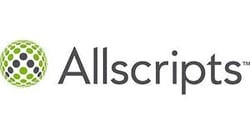 |
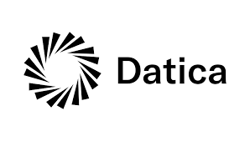 |


|
|
Allscripts + ZappRx
June 14, 2019→
Allscripts to add ZappRx to its Veradigm business unit
|
Datica + Sansoro Health
June 27, 2019→
Merged vendors retain Datica name and offer one platform
|
Nuance + Microsoft
Oct. 17, 2019→
Nuance migrating products to Microsoft Azure
|
Summary
These five funding rounds and three mergers and acquisitions are just the tip of the iceberg of investment activity since the beginning of 2019.There are a myriad of others not covered in this column. Aside from the growing involvement of traditionally non-health care companies and institutions snatching up startups and software developers, growth was at the forefront of these transactions.
Increased funding, regardless of funding round, gives companies wiggle room to scale and grow comfortably, as well as take advantage of relationships and legacy processes they didn’t have access to before. Disruptors can’t disrupt a space without historical context of what’s worked and what hasn’t. Additionally, partnerships and merged teams provide security for the upstarts that have the vision but not the capital resources of bigger players.
Many mergers and acquisitions in 2019 are still waiting to see what works, post consolidation. As I mentioned above, consolidation isn’t the deus ex machina that ties everything into a pretty bow. Historically, gaps and issues have arisen. Some of these include culture clash, negative impacts on patient experience, and inability to achieve cost and resource benefits. That’s not stopping the industry from touting the benefits of mergers and acquisitions, and pumping capital into legitimate products and services that promise to continue the health care industry trends of digitization, productive high-tech, and appeal to all demographics.










 by Jasmine Lee
by Jasmine Lee
 by Jasmine Lee
by Jasmine Lee
 by Jasmine Lee
by Jasmine Lee
